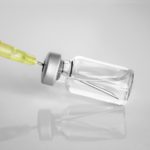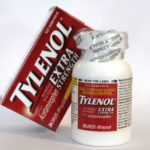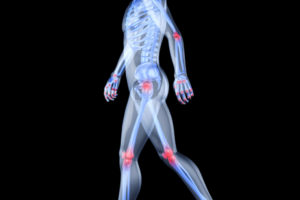
Gout and Cancer Connection?
Is there a connection between Gout and Cancer? Gout is a common inflammatory disease with incidences largely increasing with each passing year and affecting younger and younger age groups more than ever before. Acute arthritis and hyperuricemia stems from purine metabolism dysfunction, causing urate crystals to deposit into the tissue leading to kidney stones, soft tissue growths, urate nephropathy and/or arthritis. Epidemiological studies have been conducted to estimate the potential association between Gout and Cancer risks. These studies have displayed a preeminent role of Gout in carcinogenesis.
Cellular death and higher turnover rates can bring about hyperuricemia and the formation of tumors (tumorigenesis.) Even though strong evidence exists to show the connection between high serum uric acid levels and an independent increased risk of cancer, the subject remains disputable. Continue reading “Gout and Cancer Connection?”

 Traveling can be hectic as is, and downright scary if you suffer from Gout. If you are going abroad it can be even more of a worry as you are not near home, or in the same country to get the help you need, that is why making a packing list, or checking one out from such websites as
Traveling can be hectic as is, and downright scary if you suffer from Gout. If you are going abroad it can be even more of a worry as you are not near home, or in the same country to get the help you need, that is why making a packing list, or checking one out from such websites as  In a desperate search to consume a safer water source than the parasite, dioxin and
In a desperate search to consume a safer water source than the parasite, dioxin and  According to the latest CARES trial, the Gout drug Febuxostat (Uloric) failed up against Allopurinol when it came down to a combined rate of fatal and nonfatal adverse events for those that suffer with both Gout and Cardiovascular disease. In fact, there was a significant increased risk of death for those that took this drug for Gout while also suffering from heart disease.
According to the latest CARES trial, the Gout drug Febuxostat (Uloric) failed up against Allopurinol when it came down to a combined rate of fatal and nonfatal adverse events for those that suffer with both Gout and Cardiovascular disease. In fact, there was a significant increased risk of death for those that took this drug for Gout while also suffering from heart disease. Regular physical activity can offer us a multitude of health benefits. Recent studies show just 20 minutes a day can produce anti-inflammatory effects, adding to the already lengthy list of how fitness can support our bodies. That’s right! In addition to reducing heart disease, lowering
Regular physical activity can offer us a multitude of health benefits. Recent studies show just 20 minutes a day can produce anti-inflammatory effects, adding to the already lengthy list of how fitness can support our bodies. That’s right! In addition to reducing heart disease, lowering 
 Acetaminophen (also labeled as Paracetamol, or more commonly known as
Acetaminophen (also labeled as Paracetamol, or more commonly known as  Gout affects an estimated 4% of the population, or around 1 in 25 people. Evidence suggests this number is growing and is certainly affecting a larger demographic than in the past. A lot of confusion has surrounded the specifics on how high levels of
Gout affects an estimated 4% of the population, or around 1 in 25 people. Evidence suggests this number is growing and is certainly affecting a larger demographic than in the past. A lot of confusion has surrounded the specifics on how high levels of We all know that stress can cause ailments such as difficulty sleeping, muscle tension, changes in appetite, headaches, stomach problems, panic attacks, and prolonged feeling of sadness or worthlessness. But, did you also know that stress can literally alter the cells in our body and lead to chronic
We all know that stress can cause ailments such as difficulty sleeping, muscle tension, changes in appetite, headaches, stomach problems, panic attacks, and prolonged feeling of sadness or worthlessness. But, did you also know that stress can literally alter the cells in our body and lead to chronic 